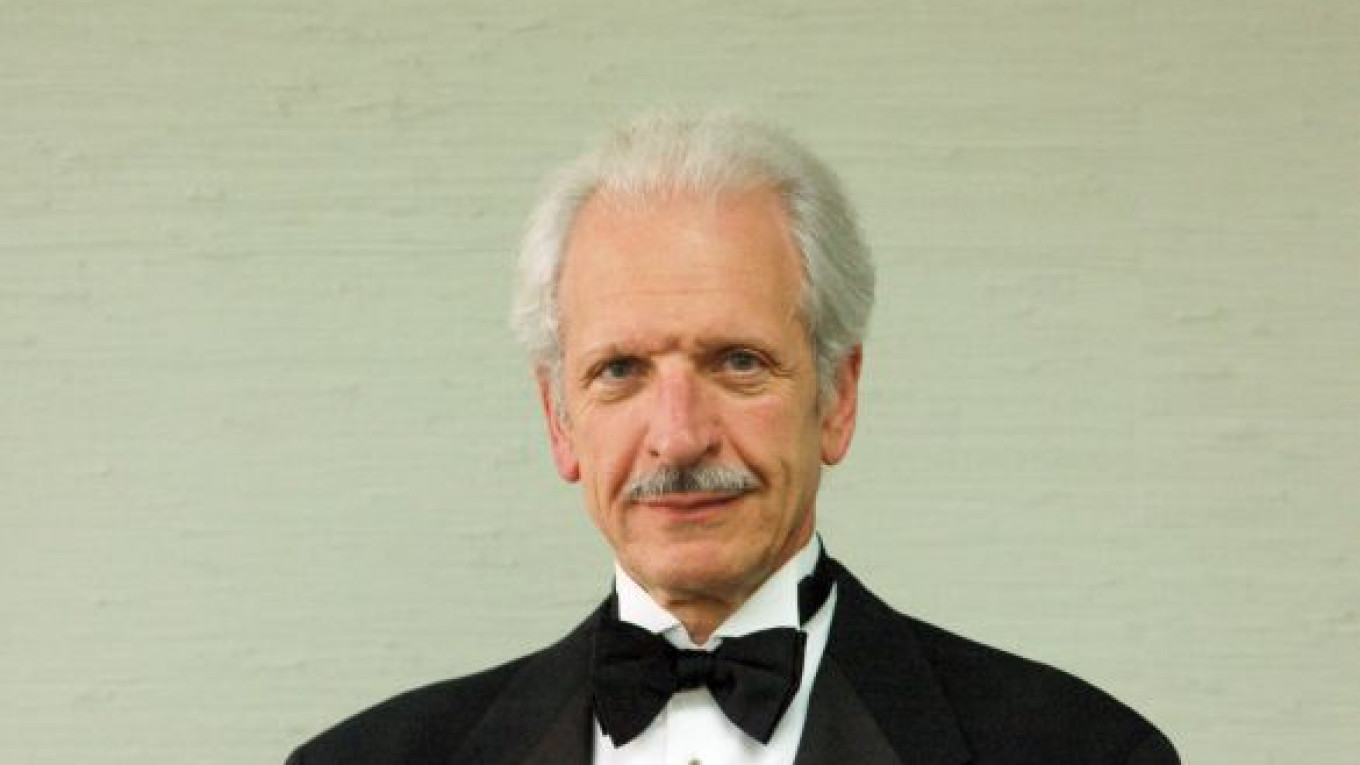Recognizing an urgent need to reform the competition and restore its former prestige, the Culture Ministry last spring appointed Valery Gergiyev, probably the most widely known and respected of all present-day Russian musicians, as chairman of next year’s 14th Tchaikovsky Competition.
The ministry has also brought on board, as senior advisor, Richard Rodzinski, a highly regarded figure in the world of music competitions. Son of Artur Rodzinski, one of the true giants among 20th-century orchestral conductors, the younger Rodzinski chose a career in music management, holding administrative posts at the Metropolitan Opera in New York and the San Francisco Opera and eventually taking charge of the Texas-based Van Cliburn International Piano Competition. His 23 years as that competition’s executive director brought it widespread acclaim for its transparency, the fairness of its decisions and its superior management.
On a visit to Moscow last week, Rodzinski took time out to describe what has already been done to distinguish the 14th Tchaikovsky Competition from its predecessors, especially those of the recent past.
“First of all,” he noted, “we’ve begun a worldwide advertising campaign. There was no real dissemination of information prior to the last competition [in 2007] and, as a result, international participation there was disgraceful.” As part of the campaign, a brand-new logo and web site (Tchaikovsky-Competition.com) have been created and posters distributed to music schools throughout the world.
The competition itself will take place under an entirely new set of rules and regulations. “They’re basically those of the Cliburn competition,” said Rodzinski, “somewhat modified to suit the specific circumstances of the Tchaikovsky.”
Most important of all will be a new voting system, one developed for competitions in the United States, including the Cliburn, and described by Rodzinski as very sophisticated in its construction. “It’s also transparent,” he said. “The only thing that won’t be disclosed is the numerical grade given by a particular jury member to a particular contestant.”
The composition of competition juries is also due for a major change. Juries of the recent past have included a fair number of teachers, including Moscow Conservatory faculty members notorious for lobbying and voting in favor of their own pupils. “Gergiyev wants to put emphasis instead on performing musicians,” Rodzinski said, “and to attract well-known names who in turn will serve to attract participants.”
Besides trying to bring in a more diverse and more talented group of young musicians, the competition is also cutting back on their numbers, “in order,” said Rodzinski, “to make it more manageable.” Only 30 pianists will take part, as opposed to 51 in 2007, and similar reductions will be made in the numbers of competing violinists, cellists and vocalists.
In addition, the number of prizes will be reduced from eight to five in each instrumental category and from six to four each for male and female vocalists. Prize money, however, will be substantially increased, at least in terms of current exchange rates, with euros replacing in equal number the dollars that were previously awarded. First-prize winners will take away 20,000 euros ($28,000) each and become eligible for a possible 10,000 euro grand prize, which the combined juries can award at their discretion.
Much criticized in the past has been the juries’ failure in some cases to award a first prize. Next year, the first prize will become mandatory. “I’ve insisted on that,” said Rodzinski. “At a big competition like the Tchaikovsky, someone is going to be at least pretty good, even if he or she doesn’t match up to some remembered contestant of the past. It’s a bit like wine, where some vintages are less good than others, but nevertheless you don’t throw them away. Also, it really demoralizes the other contestants if there is no first prize. It makes them think ‘we must all be lousy’ if no one gets that award.”
The value of competitions to furthering musical careers has been much questioned in recent times. Next year’s Tchaikovsky Competition, by way of innovation, will attempt to provide an answer of sorts to those in doubt, offering its prize winners an opportunity to display their talents in an extensive series of concerts both within Russia and abroad. Among the engagements certain to be proposed will be appearances with the two orchestral ensembles currently led by Maestro Gergiyev, the Orchestra of St. Petersburg’s Mariinsky Theater and the London Symphony Orchestra.


